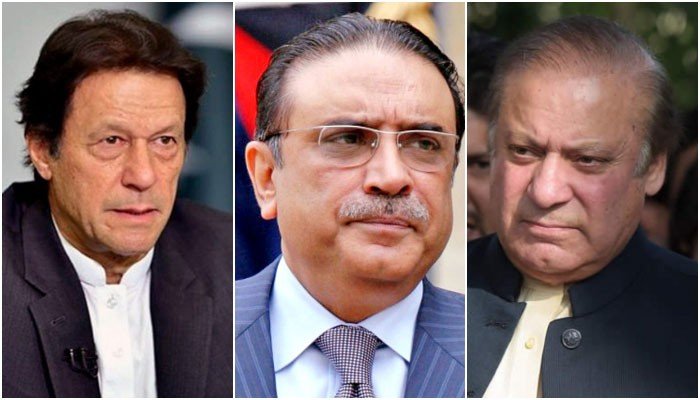
Pakistani politics is once again in turmoil and there are rumors afloat about what will happen next.
According to an editorial in The Friday Times by Najam Sethi, “something will give. The situation is primed for it. Either popular pressure originating from comprehensive hybrid regime failure to manage the economy and state will compel the Miltablishment and/or judiciary to review options and abandon Imran Khan. Or the PDM will finally find a windfall political opening to surge ahead with confidence and besiege Islamabad. The tragedy of Pakistan is that in such a potentially revolutionary moment when the masses are waking up to the sham sanctity of post-colonial state institutions and are ready to challenge them, the opposition is unable, even unwilling, to seize the day.”
Sethi notes that historically “the Miltablishment was a sacred cow whose very mention evoked omnipotence and patriotism. There were three main reasons for this exalted status: it was perceived as the sole bulwark against Hindu India domination, an image it has assiduously cultivated and propagated by implanting revisionist history in our textbooks; its leaders were not perceived to be overly corrupt or Machiavellian, partly because it was successful in “managing” the media to black out anything to the contrary, especially its commercial contracts and perks and privileges, “in the interest of national security and the ideology and solidarity of Pakistan”. Civilian politicians, by contrast, were perceived to be venal, back-stabbing and corrupt, partly by their own omissions and commissions but also because the Miltablishment worked overtime to manipulate and entrench such opinion in the imagination of the people.”
Now, however, Sethi argues, “these perceptions have been significantly eroded in recent times. The Emperor has been exposed as a scheming, hypocritical, self-righteous, self-interested entity in open conflict with popular opinion about the sanctity of the vote that was stolen in 2018 to install a puppet, hybrid regime. As a corollary of this theft and a consequence of the dismal failure of this hybrid regime to deliver results, ex-thrice elected Prime Minister Nawaz Sharif has recaptured the imagination of the people to become the most potent obstacle to the Miltablishment’s political objectives. Indeed, after he crossed the Rubicon to deliver telling blows to the leaders of the Miltablishment, the institution was compelled to protect its corporate interests and restrain the personal ambitions of its exposed leaders.”
Further, since independence, the judiciary was perceived to be a handmaiden to the executive, a hangover from colonial times when such was indeed the case in political matters of concern to the imperialist administration. But a degree of “independence” was imposed by a democratic constitution in 1973 which gave scope for shrugging away the burden of the executive. Unfortunately, however, this was eclipsed by decades of martial rule when the man on horseback wielded the sword of necessity over the judges and cut them to size. Five recent incidents have thus far demeaned and exposed the higher judiciary.”
Sethi argues that the opposition led Pakistan Democratic Movement “senses all this but is unable to chart the way forward for several reasons. The PPP fears that if it strays too far out of line from the Miltablishment, Asif Zardari will be incarcerated, the party will be ousted from office in its last stronghold of Sindh and be relegated to the dustbin of history. The PMLN is divided between the opposing political outlook of two brothers who cannot be parted even though their joint struggle is the very cause of their own impotence that has created confusion and de-motivation in the rank and file of the PMLN.”
![]()





